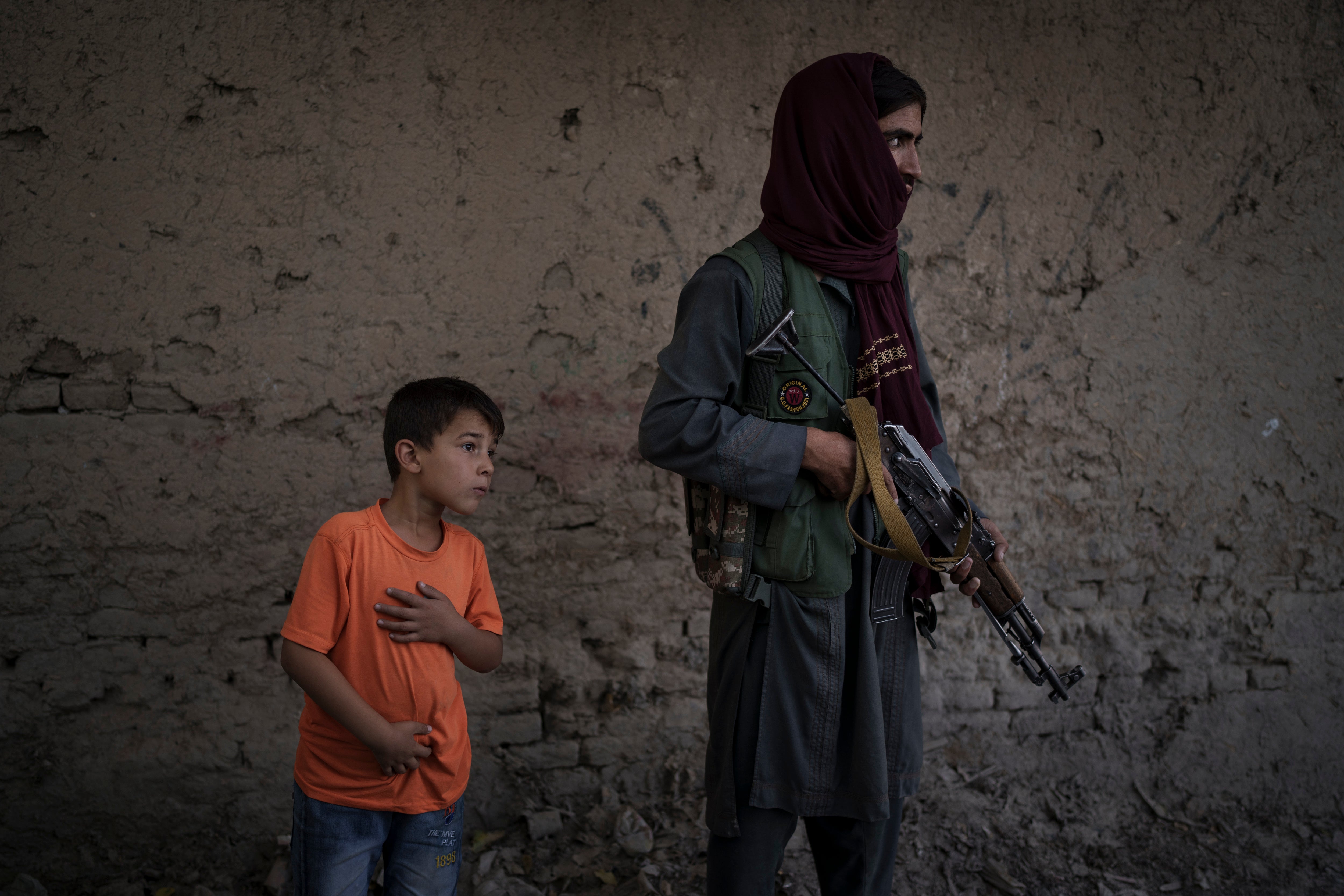AP PHOTOS: Taliban face shift from war to policing streets
The Taliban are shifting from being warriors to an urban police force

Your support helps us to tell the story
From reproductive rights to climate change to Big Tech, The Independent is on the ground when the story is developing. Whether it's investigating the financials of Elon Musk's pro-Trump PAC or producing our latest documentary, 'The A Word', which shines a light on the American women fighting for reproductive rights, we know how important it is to parse out the facts from the messaging.
At such a critical moment in US history, we need reporters on the ground. Your donation allows us to keep sending journalists to speak to both sides of the story.
The Independent is trusted by Americans across the entire political spectrum. And unlike many other quality news outlets, we choose not to lock Americans out of our reporting and analysis with paywalls. We believe quality journalism should be available to everyone, paid for by those who can afford it.
Your support makes all the difference.One fighter after another, the Taliban are trading in their characteristic long flowing garb for stiff military uniforms.
It is a symbol of the moment of transition they find themselves in: Once warriors embedded in Afghanistan’s rugged mountains, now they are an urban police force.
But change is always an adjustment.
In the Afghan capital of Kabul crime was rampant under the previous government of Ashraf Ghani Robberies and kidnappings were a near daily occurrence and the judicial process time-consuming and expensive.
By winning the country after two decades of war with the Aug. 15 seizure of Kabul, the Taliban also inherited a city marked by lawlessness.
Immediately they set to work, making their presence known in daily street patrols. Some have done away with the typical AK-47 rifles, for U.S.-made M16s left behind by Afghan forces.
They halt street fights, summon suspected criminals to police stations and chase those who do not heed their call.
In Kabul’s police district 8, there is a long queue leading to two rooms. In one, there are criminal cases. In another, civilian disputes. Victims of stabbings, robbery and other misdeeds sit in the same room as alleged perpetrators, staring into the distance until it’s their turn to plead their case.
For lesser crimes, Taliban police offer the accused three days to show up to the station. After that, they go after them.
The court system is a work in progress, officials said. Meetings are still underway between Taliban officials — used to tribal justice prevalent in rural Afghanistan — to work out the process in a sprawling city with an active judiciary.
Even those who fear them in the embattled city welcome the peace their arrival has wrought.
The Taliban have empowered local elders to pass judgement based on Shariah, or Islamic law, for minor criminal cases. In the Sheikh Zayed City residential area of Kabul, a committee of elders ordered the father of a man accused of stabbing a neighbor to pay 35,000 Afghanis, around $400.
The father counts the banknotes in a rapid shuffle and hands it to the imam, who offers it to the family of the victim. They embrace. Justice served.